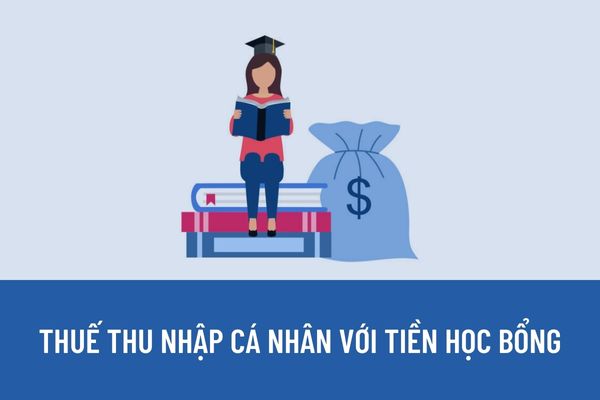Are Scholarships Subject to Personal Income Tax? Which Individuals Are Eligible for Policy Scholarships?
Who is eligible to be considered and awarded incentive scholarships for academic performance?
Pursuant to Clause 1, Article 8 of Decree 84/2020/ND-CP regulating the subjects eligible for consideration and award of incentive scholarships for academic performance as follows:
- High school students specializing in university education institutions, specialized schools with good conduct, excellent academic performance in the scholarship evaluation period, achieving a major subject score of 8.5 or higher during the evaluation semester or winning one of the encouragement awards or higher in national, regional, or international excellent student contests of that year;
- Students of art, physical education, and sports schools with good or higher conduct, average or higher academic performance in the scholarship evaluation period, and winning awards or medals in national, regional, or international competitions of that academic year;
- Students currently studying in vocational education institutions, university education institutions with good or higher academic results, good conduct, and no disciplinary actions from reprimand or higher during the scholarship evaluation period.

Does scholarship money have to pay personal income tax? Who are eligible for policy scholarships?
Is income from scholarships subject to personal income tax?
Pursuant to Article 4 of the Personal Income Tax Law 2007 (amended by Clause 2, Article 1 of the Amended Personal Income Tax Law 2012 and Clause 3, Article 2 of the Amended Laws on Taxes 2014) stipulates as follows:
Tax-exempt income
1. Income from transferring real estate between spouses; biological parents to biological children; adoptive parents to adopted children; parents-in-law to daughters-in-law; parents-in-law to sons-in-law; paternal grandparents to grandchildren; maternal grandparents to grandchildren; siblings to each other.
2. Income from transferring residential houses, the right to use homestead land, and assets attached to homestead land of individuals in cases where individuals only have one residential house, homestead land.
3. Income from the value of the right to use land allocated by the State to individuals.
4. Income from inheritance, gifts being real estate between spouses; biological parents to biological children; adoptive parents to adopted children; parents-in-law to daughters-in-law; parents-in-law to sons-in-law; paternal grandparents to grandchildren; maternal grandparents to grandchildren; siblings to each other.
5. Income of households and individuals directly engaged in agricultural, forestry, salt making, aquaculture, and fishing activities that have not been processed into other products or only undergone rudimentary processing.
6. Income from exchanging agricultural land by families and individuals allocated by the State for production.
7. Income from interest on deposits at credit institutions, interest from life insurance contracts.
8. Income from remittances.
9. The portion of salary paid for night shift work, overtime that is higher than the daytime salary, working hours according to the law.
10. Retirement salary paid by the social insurance fund; retirement salary paid by the voluntary retirement fund on a monthly basis.
11. Income from scholarships, including:
a) Scholarships received from the state budget;
b) Scholarships received from domestic and foreign organizations according to their academic support programs.
12. Income from compensation, insurance contract settlement in life insurance, and non-life insurance, compensation for labor accidents, state compensation, and other compensations according to the law.
13. Income received from charity funds approved or recognized by competent state authorities, operating for charitable, humanitarian purposes, not for profit.
14. Income received from foreign aid for charity, humanitarian purposes in the form of governmental and non-governmental organizations approved by competent state authorities.
15. Income from wages, salaries of Vietnamese seafarers working for foreign shipping companies or Vietnamese shipping companies operating internationally.
16. Income of individuals being ship owners, individuals with ship usage rights, and individuals working on ships from providing goods and services directly supporting offshore fishing and fishing activities.
Income from scholarships, including scholarships received from the state budget and scholarships received from domestic and foreign organizations according to their academic support programs, will be exempt from personal income tax.
Who are eligible for policy scholarships?
Pursuant to Clause 1, Article 9 of Decree 84/2020/ND-CP as follows:
Policy Scholarships
1. Subjects: Students according to selection policies; students of university preparatory schools, ethnic boarding schools; students of vocational education institutions for war invalids and persons with disabilities.
Thus, students according to selection policies, students of university preparatory schools, ethnic boarding schools, and students of vocational education institutions for war invalids and persons with disabilities will be eligible for policy scholarships.
LawNet
